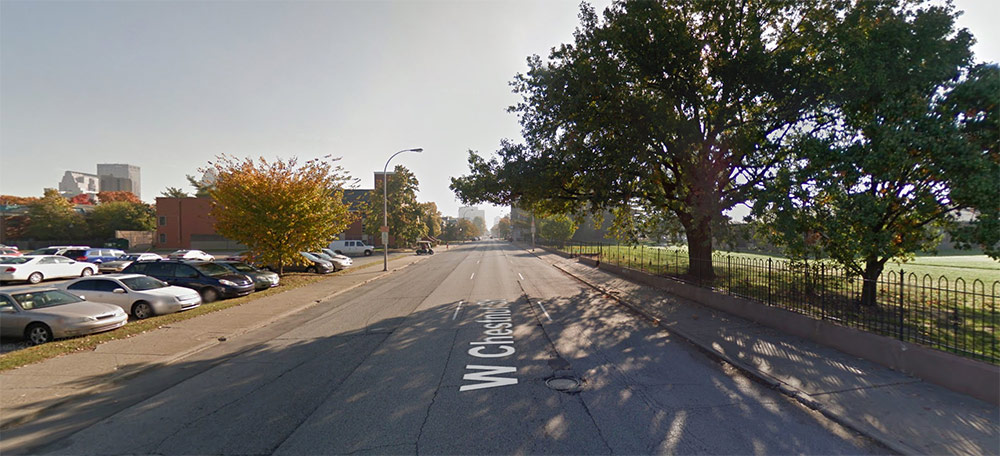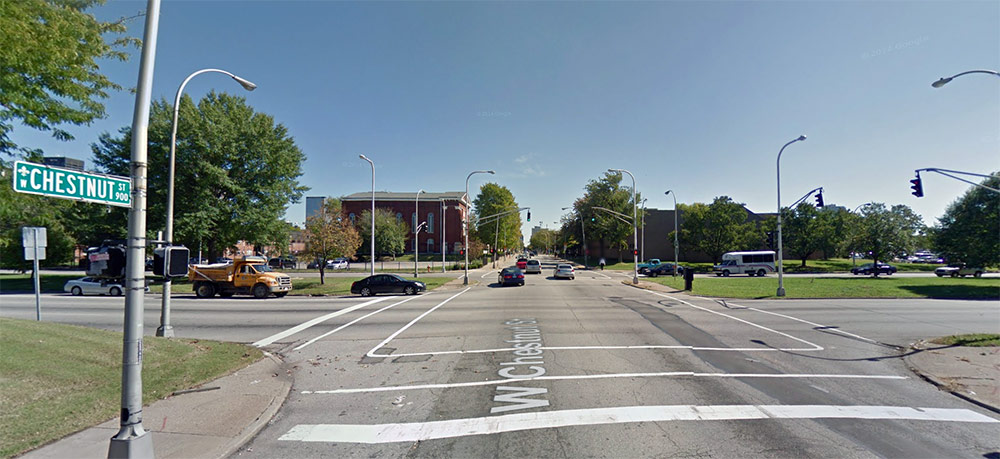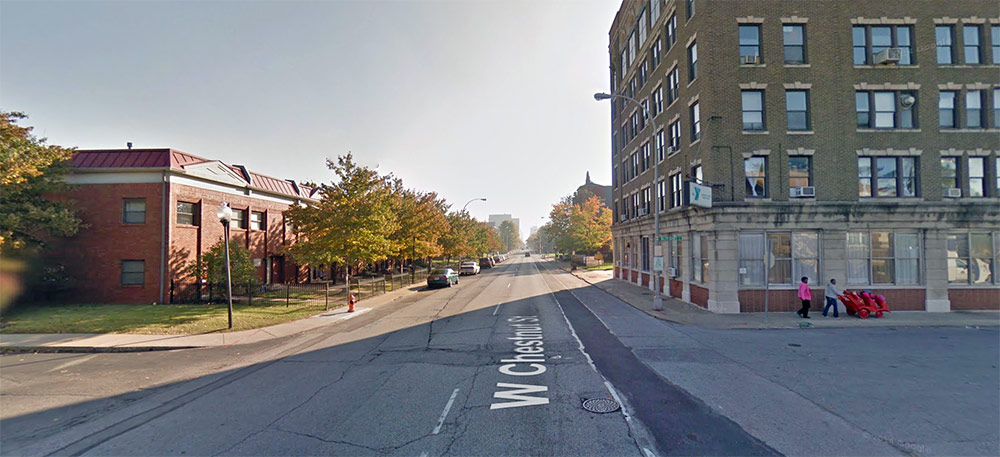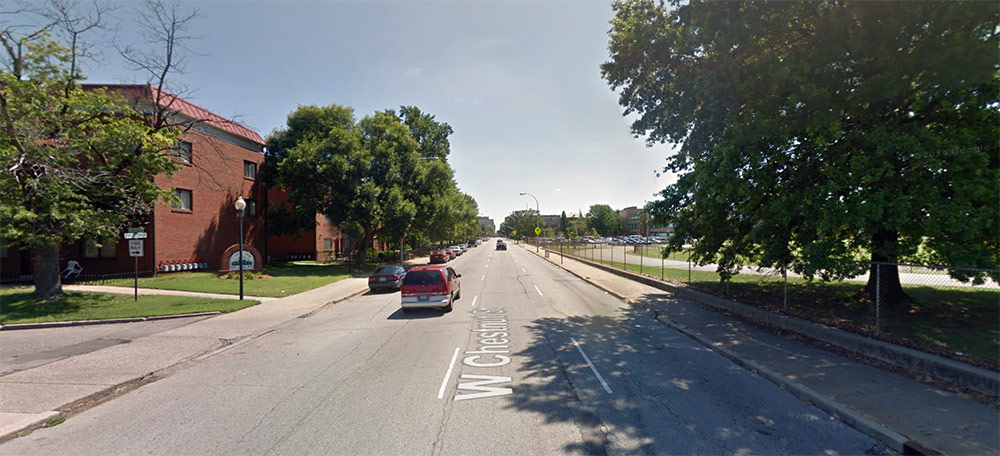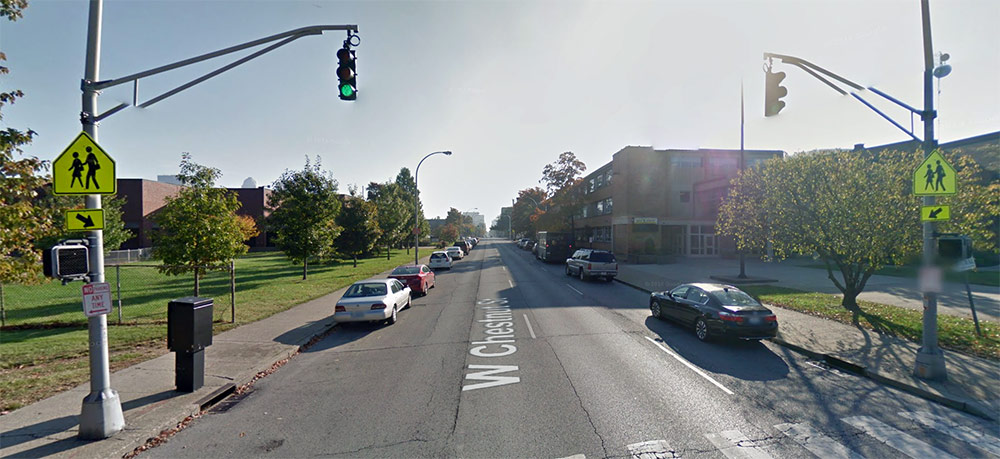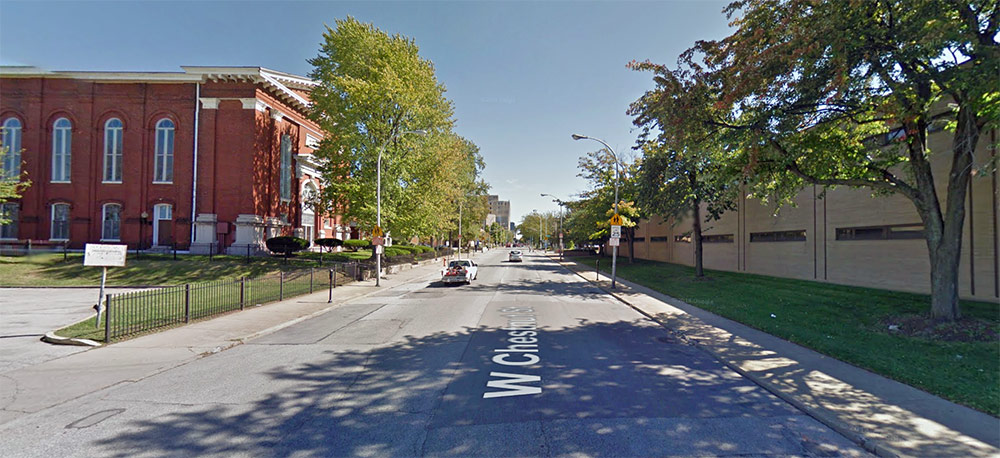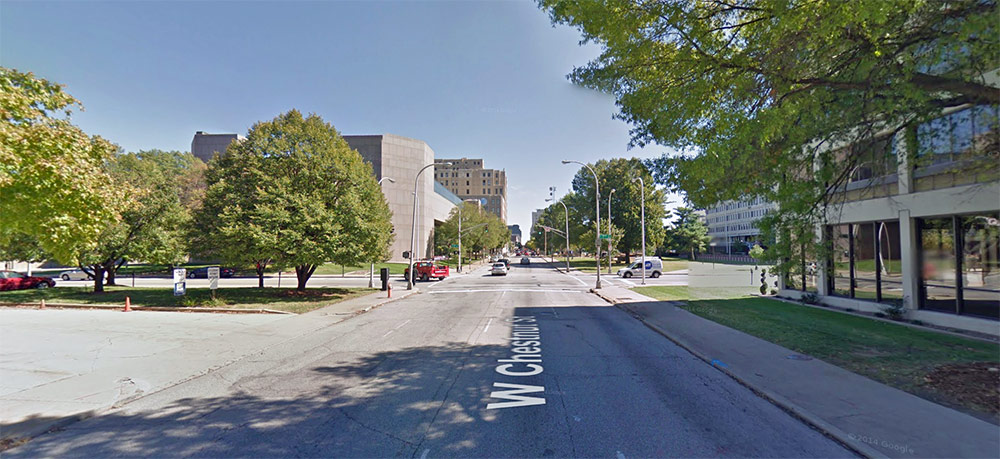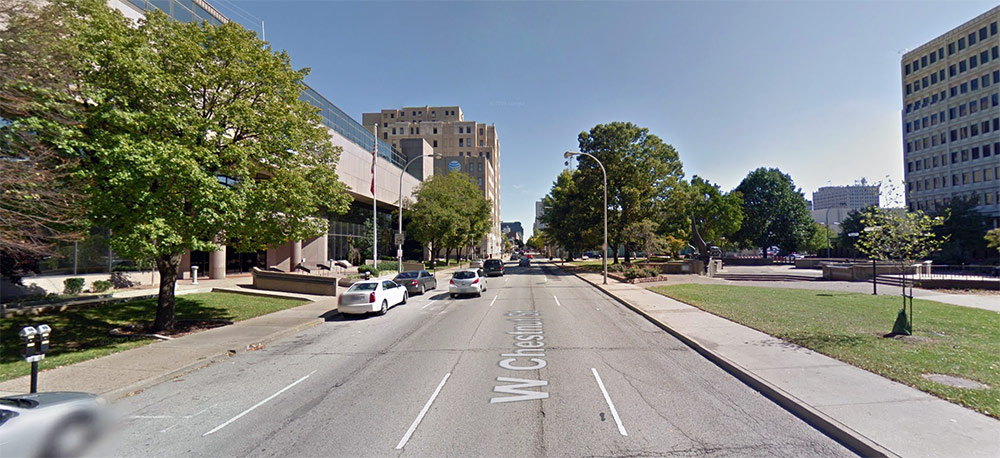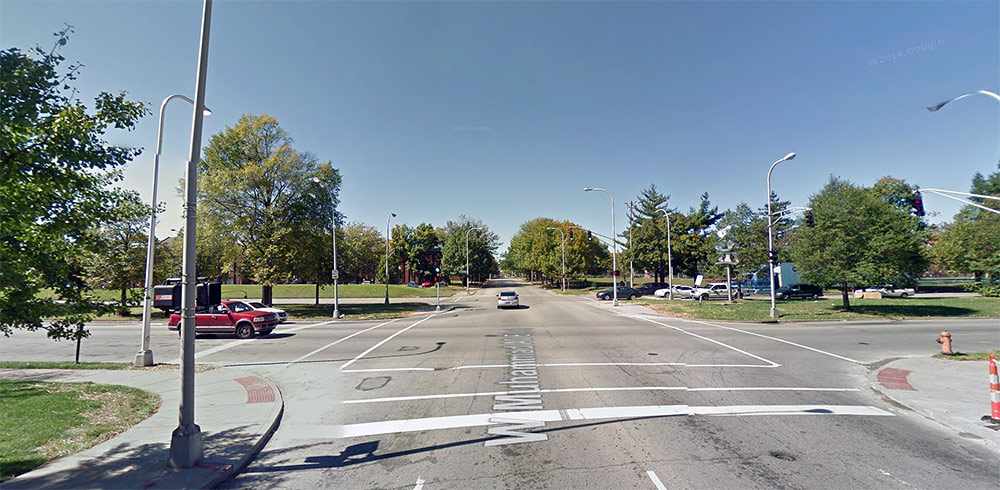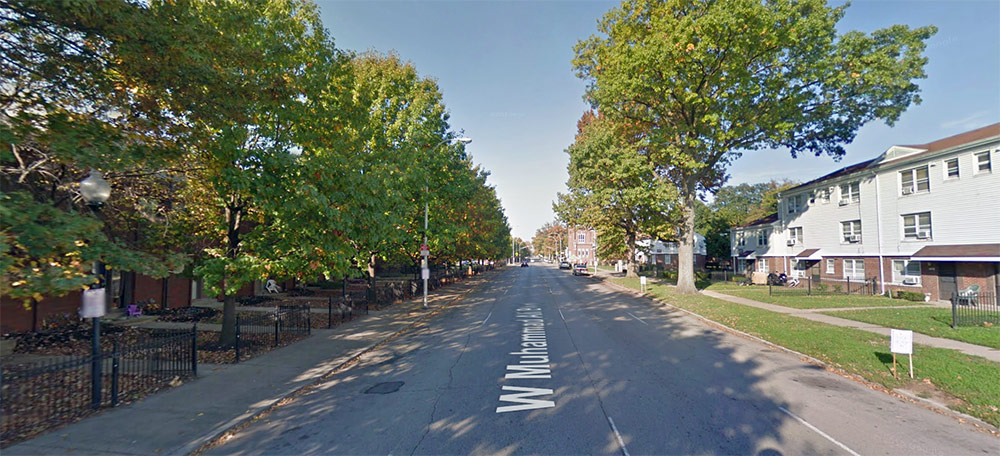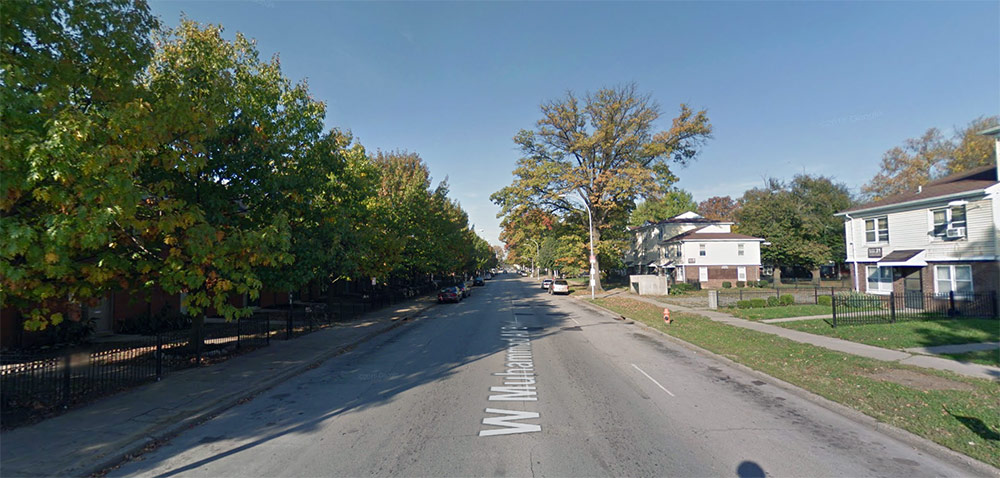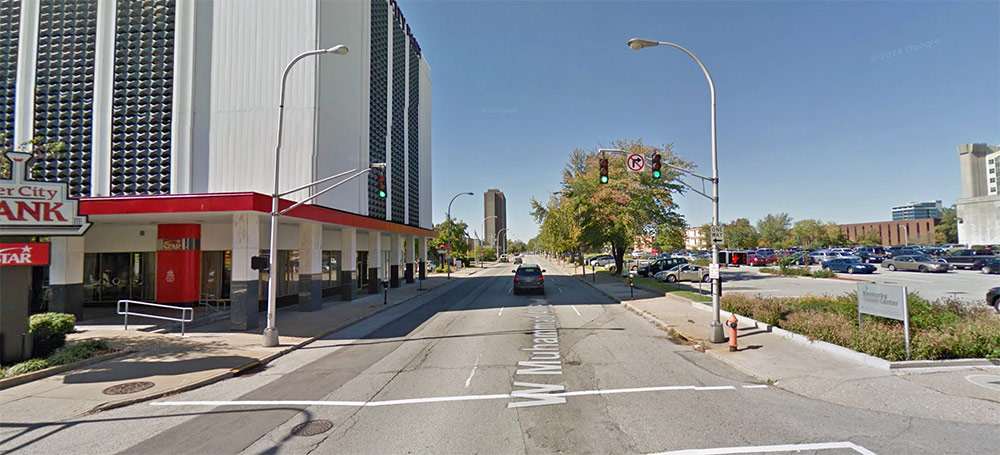Forget about those goats, 2015 is the #YearOfTheBike, at least according to Bicycling for Louisville. And the city’s bicycling authority, Bike Louisville, is hard at work on the year’s first piece of new infrastructure: a set of bike lanes of Muhammad Ali Boulevard and Chestnut Street between Sixth Street and 13th Street.

The two-mile-long project will help connect Downtown Louisville with the Russell neighborhood, and extend the Vermont Avenue Neighborway—running from Southern Parkway to 13th Street—to downtown. According to Bike Louisville, the new street design will include two permanent 7-foot-wide parking lanes, eliminating the peak hour parking restrictions in place currently, and provide a ten-foot and 11-foot driving lane, with a five-foot-wide bike lane and two-foot door zone buffer.
A turning lane will be added “where motorists need to cross over the bike lane in order to make their designated turn at the intersections.” A special bike lane configuration at the Mazzoli Federal Building on Chestnut Street calls for a six-foot bike lane with a two-foot buffer on each side with two 11-foot driving lanes and a ten-foot parking lane.

Bike Louisville continued (sic):
The reconfigured cross-section improves safety by: eliminating conflict points at the intersections, reducing the length of the pedestrian crosswalks and reducing the average vehicle speed within range of the posted speed limit. By removing the peak hour parking restriction will allow for additional pavement width that will be utilized for buffered bike lanes. The buffered bike lanes will provide addition separation from the door zone.
The two-mile-long project will cost $23,000. Funds are allocated from Mayor Greg Fischer’s Urban Bike Network allocation approved in the 2015 fiscal year budget. The project was a collaboration between Bike Louisville, the Departments of Public Works & Assets and Codes & Regulations, Economic Growth & Innovation, and the Downtown Development Corporation.
Bike Louisville will also be studying the safety benefits that result from the project, comparing collision types before and after the improvements—a study that is expected to take about three years once the lanes are installed. Safety benefits are expected to include a reduction in sideswipes and rear-end collisions. Metro Louisville will also study the change in traffic flow as a result of the project.
If all goes as planned, the new bike lanes could be in place as soon as April or May of this year.

